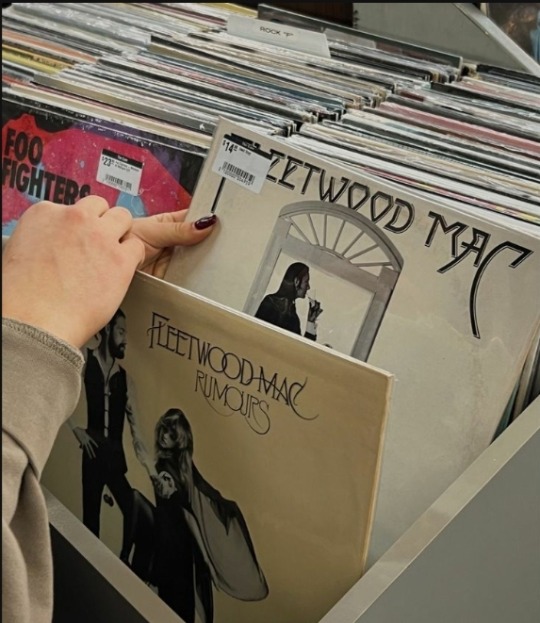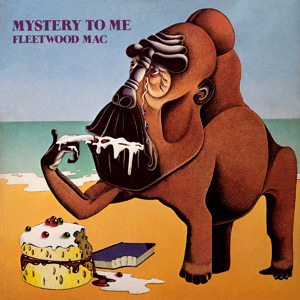#Peter Green
Text

55 notes
·
View notes
Text

Fleetwood Mac - Peter Green
32 notes
·
View notes
Text
PETER GREEN & FLEETWOOD MAC - Untitled Instrumental (part 1)
Live At Carousel Ballroom, June 9 1968, San Francisco, CA
44 notes
·
View notes
Note
I see you talk a lot about historiography! What would you consider the most important development of Alexander’s historiography?
What the Hell is Historiography? (And why you should care)
This question and the next one in the queue are both going to be fun for me. 😊
First, some quick definitions for those who are new to me and/or new to reading history:
Historiography = “the history of the histories” (E.g., examination of the sources themselves rather than the subject of them…a topic that typically incites yawns among undergrads but really fires up the rest of us, ha.)
primary sources = the evidence itself—can be texts, art, records, or material evidence. For ancient history, this specifically means the evidence from the time being studied.
secondary sources = writings by historians using the primary evidence, whether meant for a “regular” audience (non-specialists) or academic discussions with citations, footnotes, and bibliography (sometimes referred to as “full scholarly apparatus”).
For ancient history, we also sometimes get a weird middle category…they’re not modern sources but also not from the time under discussion, might even be from centuries after the fact. Consider the medieval Byzantine “encyclopedia” called the Suda (sometimes Suidas), which contains information from now lost ancient sources, finalized c. 900s CE. To give a comparison, imagine some historian a thousand years from now studying Geoffry Chaucer from the 1300s, using an entry about him in some kid’s 1975 World Book Encyclopedia that contains information that had been lost by his day.
This middle category is especially important for Alexander, since even our primary sources all date hundreds of years after his death. Yes, those writers had access to contemporary accounts, but they didn’t just “cut-and-paste.” They editorialized and selected from an array of accounts. Worse, they rarely tell us who they used. FIVE surviving primary Alexander histories remain, but he’s mentioned in a wide (and I do mean wide) array of other surviving texts. Alas this represents maybe a quarter of what was actually written about him in antiquity.
OKAY, so …
The most important historiographic changes in Alexander studies!
I’m going to pick three, or really two-and-a-half, as the last is an extension of the second.
FIRST …decentering Arrian as the “good” source as opposed to the so-called “vulgate” of Diodoros-Curtius-Justin as “bad” sources.
Many earlier Alexander historians (with a few important exceptions [Fritz Schachermeyr]) considered Arrian to be trustworthy, Plutarch moderately trustworthy if short, and the rest varying degrees of junk. W. W. Tarn was especially guilty of this. The prevalence of his view over Schachermeyr’s more negative one owed to his popularity/ease of reading, and the fact he wrote on Alexander for volume 6 of the first edition (1927) of the Cambridge Ancient History, later republished in two volumes with additions (largely in vol. 2) in 1948 and 1956. Thus, and despite being a lawyer (barrister) not a professional historian, his view dominated Alexander studies in the first half of the 20th century (Burn, Rose, etc.)…and even after. Both Mary Renault and Robin Lane Fox (neither of whom were/are professional historians either), as well as N. G. L. Hammond (with qualifications), show Tarn’s more romantic impact well into the middle of the second half of the 20th century. But you could find it in high school and college textbooks into the 1980s.
The first really big shift (especially in English) came with a pair of articles in 1958 by Ernst Badian: “The Eunuch Bagoas,” Classical Quarterly 8, and “Alexander the Great and the Unity of Mankind,” Historia 7. Both demolished Tarn’s historiography. I’ve talked about especially the first before, but it really WAS that monumental, and ushered in a more source-critical approach to Alexander studies. This also happened to coincide with a shift to a more negative portrait of the conqueror in work from the aforementioned Schachermeyr (reissuing his earlier biography in 1973 as Alexander der Grosse: Das Problem seiner Persönlichtenkeit und seines Wirkens) to Peter Green’s original Alexander of Macedon from Thames and Hudson in 1974, reissued in 1991 from Univ. of California-Berkeley. J. R. Hamilton’s 1973 Alexander the Great wasn’t as hostile, but A. B. Bosworth’s 1988 Conquest and Empire: The Reign of Alexander the Great turned back towards a more negative, or at least ambivalent portrait, and his Alexander in the East: The Tragedy of Triumph (1996) was highly critical. I note the latter two as Bosworth wrote the section on Alexander for the much-revised Cambridge Ancient History vol. 6, 1994, which really demonstrates how the narrative on Alexander had changed.
All this led to an unfortunate kick-back among Alexander fans who wanted their hero Alexander. They clung/still cling to Arrian (and Plutarch) as “good,” and the rest as varying degrees of bad. Some prefer Tarn’s view of the mighty conqueror/World unifier/Brotherhood-of-Mankind proponent, including that He Absolutely Could Not Have Been Queer. Conversely, others are all over the romance of him and Hephaistion, or Bagoas (often owing to Renault or Renault-via-Oliver Stone), but still like the squeaky-nice-chivalrous Alexander of Plutarch and Arrian.
They are very much still around. Quite a few of the former group freaked out over the recent Netflix thing, trotting out Plutarch (and Arrian) to Prove He Wasn’t Queer, and dismissing anything in, say, Curtius or Diodoros as “junk” history. But I also run into it on the other side, with those who get really caught up in all the romance and can’t stand the idea of a vicious Alexander.
It's not necessary to agree with Badian’s (or Green’s or Schachermeyr’s) highly negative Alexander to recognize the importance of looking at all the sources more carefully. Justin is unusually problematic, but each of the other four had a method, and a rationale. And weaknesses. Yes, even Arrian. Arrian clearly trusted Ptolemy to a degree Curtius didn’t. For both of them, it centered on the fact he was a king. I’m going to go with Curtius on this one, frankly.
Alexander is one of the most malleable famous figures in history. He’s portrayed more ways than you can shake a stick at—positive, negative, in-between—and used for political and moral messaging from even before his death in Babylon right up to modern Tik-Tok vids.
He might have been annoyed that Julius Caesar is better known than he is, in the West, but hands-down, he’s better known worldwide thanks to the Alexander Romance in its many permutations. And he, more than Caesar, gets replicated in other semi-mythical heroes. (Arthur, anybody?)
Alfred Heuss referred to him as a wineskin (or bottle)—schlauch, in German—into which subsequent generations poured their own ideas. (“Alexander der Große und die politische Ideologie des Altertums,” Antike und Abendland 4, 1954.) If that might be overstating it a bit, he’s not wrong.
Who Alexander was thus depends heavily on who was (and is) writing about him.
And that’s why nuanced historiography with regard to the Alexander sources is so important. It’s also why there will never be a pop presentation that doesn’t infuriate at least a portion of his fanbase. That fanbase can’t agree on who he was because the sources that tell them about him couldn’t agree either.
SECOND …scholarship has moved away from an attempt to find the “real” Alexander towards understanding the stories inside our surviving histories and their themes. A biography of Alexander is next to impossible (although it doesn’t stop most of us from trying, ha). It’s more like a “search” for Alexander, and any decent history of his career will begin with the sources. And their problems.
This also extends to events. I find myself falling in the middle between some of my colleagues who genuinely believe we can get back to “what happened,” and those who sorta throw up their hands and settle on “what story the sources are telling us, and why.” Classic Libra. 😉
As frustrating as it may sound, I’m afraid “it depends” is the order of the day, or of the instance, at least. Some things are easier to get back to than others, and we must be ready to acknowledge that even things reported in several sources may not have happened at all. Or at least, were quite radically different from how it was later reported. (Thinking of proskynesis here.) Sometimes our sources are simply irreconcilable…and we should let them be. (Thinking of the Battle of Granikos here.)
THIRD/SECOND-AND-A-HALF …a growing awareness of just how much Roman-era attitudes overlay and muddy our sources, even those writing in Greek. It would be SO nice to have just one Hellenistic-era history. I’d even take Kleitarchos! But I’d love Marsyas, or Ptolemy. Why? Both were Macedonians. Even our surviving philhellenic authors such as Plutarch impose Greek readings and morals on Macedonian society.
So, let’s add Roman views on top of Greek views on top of Macedonian realities in a period of extremely fast mutation (Philip and Alexander both). What a muddle! In fact, one of the real advantages of a source such as Curtius is that his sources seem to have known a thing or three about both Achaemenid Persia and also Macedonian custom. He sometimes says something like, “Macedonian custom was….” We don’t know if he’s right, but it’s not something we find much in other histories—even Arrian who used Ptolemy. (Curtius may also have used Ptolemy, btw.)
In any case, as a result of more care given to the themes of the historians, a growing sensitivity to Roman milieu for all of them has altered our perceptions of our sources.
These are, to me, the major and most significant shifts in Alexander historiography from the late 1800s to the early 2100s.
#asks#historiography#alexander the great#arrian#curtius#plutarch#diodorus#justin#w.w. tarn#fritz schachermeyr#a.b. bosworth#peter green#n.g.l. hammond#mary renault#robin lane fox#j.r. hamilton#ernst badian#classics#ancient history#ancient macedonia
23 notes
·
View notes
Text



Christine McVie Dead at 79
- “She was the best musician anyone could have in their band and the best friend anyone could have in their life,” Fleetwood Mac says
Fleetwood Mac’s Christine McVie has died “following a short illness,” her family said in a statement.
McVie died Nov. 30 in a hospital with her family nearby. She was 79.
“We would like everyone to keep Christine in their hearts and remember the life of an incredible human being, and revered musician who was loved universally,” McVie’s family said.
“Gutted to learn about the passing of Christine McVie,” Garbage said in a statement. “Just gutted. Songbird forever.”
“This is so unbelievably sad,” Foghat wrote on Facebook. “RIP, Christine McVie. Such a beautiful soul.”
Born Christine Perfect, the singer/songwriter/keyboardist played first with Chicken Shack. She joined Fleetwood Mac after contributing to 1970’s Kiln House and was the band’s third-longest-serving member after Mick Fleetwood and her ex-husband John McVie.
“We cherished Christine deeply, the band said in a statement.

“She was truly one-of-a-kind, special and talented beyond measure,” Fleetwood Mac said. “She was the best musician anyone could have in their band and the best friend anyone could have in their life.”

McVie played alongside every member of Fleetwood Mac save for Peter Green and appeared on all but four of the band’s 18 studio albums.
Living Colour’s Vernon Reid eulogized McVie as his second-favorite Mac member after Green and quoted her lyrics to “You Make Loving Fun” as some of her best.
“No other voice … captured that feeling of the narcotic stage of love better than Christine McVie,” Reid said.
“What a tremendous loss to the music community,” Bret Michaels said on Twitter. “My deepest condolences to the family, friends and fans of Christine McVie.”
She recorded three solo albums between 1970 and 2004 and released a 2017 duo album with Lindsey Buckingham that was followed by a tour.
Her death is “terribly heartbreaking” and an “enormous loss,” Ron Sexsmith wrote on Twitter.
“She wrote my favorite Fleetwood Mac songs and I also loved her solo work,” he said.
11/30/22
#christine perfect#christine mcvie#chicken shack#fleetwood mac#mick fleetwood#john mcvie#peter green#jeremy spencer#danny kirwan#bob welch#dave weston#stevie nicks#rick vito#billy burnette#lindsey buckingham#mike campbell#neil finn#dave mason#garbage#ron sexsmith#foghat#bret michaels#vernon reid#living colour
226 notes
·
View notes
Text









Fleetwood Mac aesthetic 🌞
(Pics from Pinterest)
#fleetwood mac#aesthetic#pinterest#the 70s#70s music#70s#1970s music#music#1970s rock#women of rock#stevie nicks#rock#rock music#christine mcvie#lindsey buckingham#mick fleetwood#john mcvie#peter green#bob welch#fleetwood mac aesthetic
24 notes
·
View notes
Text

Painting by Maxwell Armfield

Drawing by Christine Perfect (McVie)

Photograph by Mick‘s sister Sally

Photograph by John McVie

Mystery to Me ….
——————————————————————————
I‘ve found a CD collectors edition that contains those 5 pre Buckingham/Nicks Fleetwood Mac albums and I‘ve been listening to them all day. SO UNDERRATED!! SUCH GREAT MUSIC!! Gotta love the blues!
* Then Play On (1969)
Mick Fleetwood
John McVie
Peter Green
Jeremy Spencer
Danny Kirwan
Christine Perfect (uncredited)
Sandra Elsdon (Peter‘s GF)
* Kiln House (1970)
Mick Fleetwood
John McVie
Jeremy Spencer
Danny Kirwan
Christine Perfect (uncredited)
* Future Games (1971)
Mick Fleetwood
John McVie
Christine McVie
Danny Kirwan
Bob Welch
John Perfect (Chris‘ brother)
* Bare Trees (1972)
Mick Fleetwood
John McVie
Christine McVie
Danny Kirwan
Bob Welch
Mrs Scarrott (reads a poem, elderly neighbor)
* Mystery to Me (1973)
Mick Fleetwood
John McVie
Christine McVie
Bob Welch
Bob Weston
Richard Hewson (string arrangement)
#fleetwood mac#christine mcvie#john mcvie#mick fleetwood#peter green#jeremy spencer#danny kirwan#bob welch#bob weston#then play on#kiln house#future games#bare trees#mystery to me#blues
13 notes
·
View notes
Text


1/ Danny Kirwan & John McVie of Fleetwood Mac pictured in the Chess Chicago studios during the Blues Jam at Chess session (1969).
2/ Peter Green and Mister Willie Dixon.
Photos : Jeff Lowenthal.
#rock photography#Fleetwood Mac#Danny Kirwan#John McVie#Peter Green#Willie Dixon#Jeff Lowenthal#Chess studio#blues#1969#1960s
80 notes
·
View notes
Text

Fleetwood Mac - Peter Green
60 notes
·
View notes
Text

Peter Green *October 29, 1946
30 notes
·
View notes
Text




2023 Gibson 'Greeny' Les Paul Standard reissue
#guitar#guitars#les paul#les paul standard#gibson#gibson les paul#greeny les paul#les paul greeny#peter green#fleetwood mac#homeoftone#home of tone
44 notes
·
View notes
Text
PETER GREEN & FLEETWOOD MAC - Untitled Instrumental (part 2)
Live At Carousel Ballroom, June 9 1968, San Francisco, CA
20 notes
·
View notes


